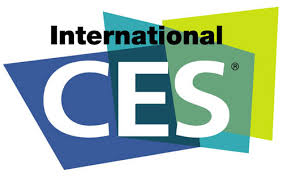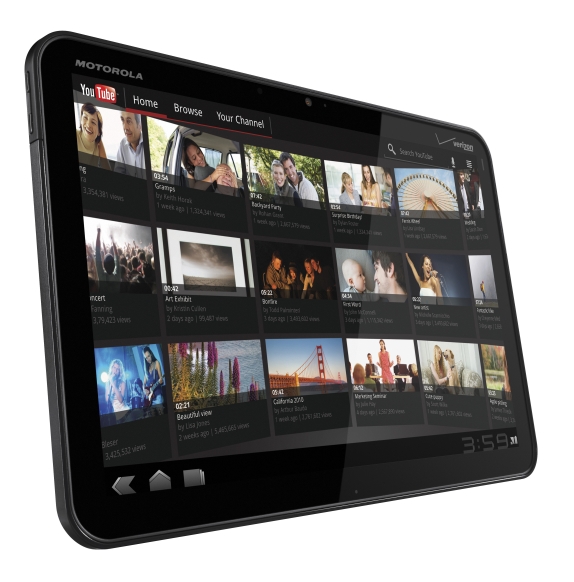Because of school, work, and other items taking up my time during the last few months I have not had a chance to post any new content in the last few months. I will try to change that for the next few months (original I know, to apologize for not posting on a blog and promising to be better). However I have a few brief thoughts about this previous year and trending topics in the last year so I will just make my comments in this blog post.
Thoughts From Computer Science Courses:
I am a computer science student at Utah State University and in this last semester have started some upper level courses in my studies. Along with this has come more work with the organization and architecture of computer systems. The more I learn about these systems the more it occurs to me that the device that I am typing on at this moment should not work. There are too many things stacked up against it. The amount of thought that has to go into even representing a floating point number and the problems that can be encountered when doing so are never considered by an average computer user. However, parts of this low-level hardware and software is far more elegant than what we use today. Where are the Donald Knuths or Alan Turings of our day? Instead of having to have a deep knowledge and intuition for how to make these things work or come up with an elegant solution we now have 12 year olds in their garage with Python kicking out programs. As is stated in the movie "Antitrust", "any teenager in a garage could put [you] out of business." When you lower the barrier for entry you let a lot more people in (profound, I know). This is good because this allows someone with a good idea to capitalize on it and make millions. Look at Zynga with Farmville and Cityville or Rovio with Angry Birds. Now I'm not saying that the creators of these products are not smart or don't have a level of deep understanding. They very well may, but do they need to now days? And who am I to say, I'm not the one that is rolling in the millions like them. Bringing this back to the subject let me say this. Are the computer scientists graduating from USU or any university (this goes for Stanford, MIT, and the like too) really what is needed to be successful? Which market is bigger, demand for computer programmers or computer scientists. How many jobs will write in assembly? Develop sorting algorithms? Or develop quantum computing? It's these degrees that set the computer scientists apart from the computer programmer. Yes this knowledge of the low-level dealings and other algorithm analysis will definitely help when it comes to a computer scientist acting as a computer programmer but really is it needed? So what if the 12 year old in his garage doesn't know how a merge sort works, how pipelining operates, or why his floating point numbers lose data? Would the four years pursuing a degree really be best spent in industry gaining real world experience with how these things actually operate? That is up to you the reader. Personally I find this shift in what is needed to be a great computer programmer fascinating. Personally I vote to stay in school but I can see benefits from the alternative.
CES 2011
Ok so technically this wasn't part of the year 2010 but it just happened so I figured I would write about it while I still had it in mind. This year I greatly enjoyed CES for the first time not because I actually went to it although it happened only a few hours from where I live, but because of CNET's awesome live coverage of the event so I would just like to start by giving them a virtual high five. Just to talk briefly about some of the bigger things brought up or products announced. First, 3D as a whole. I expected 3D to make a big showing at the show this year and it definitely has. Sony's whole press conference I swear was in 3D (makes for some fun 2D watching let me tell you). The thing I was not ready for was consumer level 3D recording products. This hadn't come to mind when thinking about 3D improvements but I find it very compelling. I'm a little worried that quality will go down but that being said I like the way its moving and the technology it means. The most important technology I think on these products is the glassess-free 3D. This is where we need to get to. Consumers aren't going to want to buy $150 glasses for each person that wants to watch their tv. A good step that I saw from some manufacturers was passive glasses for the 3D. This is a great step in my opinion. Cheap glasses could make this very good and I think should tide us over while we wait for glasses-free 3D technology to further mature. Another interesting feature that I saw a video on with a 3D TV announced at CES (Vizio's I think?) is a way to play a two player video game on one screen. The way it works is that you play normally with your glasses on but instead of using the glasses to show you the 3D content it only shows you half the picture (a 2D image) of just your player, not a split screen of your player and your friends player. Say goodbye to the days of screen peaking. Also say goodbye to the days of having to play off a tiny screen because the image appears full-screen for you. Moving on to more products. Another huge class of device announced at CES was tablets. I heard a report of 80 different tablets. I think this may have been an exaggeration but still it gets the point across. By quite a margin my favorite (as well as many others winning "Best in Show" by CNET) was the Motorola Xoom.
It is quite a beautiful device with a beautiful interface. Kyle likes him some Honeycomb. That being said there are some problems with it I see. 1). The MicroSD slot will not work on launch and will be activated by a software update. Really Motorola? Really? You don't have software to run the hardware? This remind me of updating my iPod Touch and finding out it had Bluetooth except worse! To be perfectly honest I'm not sure how many applications will work without the MicoSD. 2). Releases with 3G and then you bring it in to the store for a hardware and software update to 4G. This isn't actually a problem. 3G is perfectly fine to release with if it gets it out the door faster but that being said. I had one of those, "What the heck?" moments when I heard that it would need a hardware update too. I don't know how that is even going to work to be honest, if you have to leave your device over a weekend or something that is not ok. If they just hand you a new device that might be ok. That's more of a problem for them though. Another "tablet" I enjoyed was the Samsung 7 Sliding Series.
This one is actually more of a convertible than a tablet but it is the first convertible that I actually thought, "I like". That's how I think they should work. The sliding mechanism is a little iffy but I like how it looks both open and closed and it really looks functional to me. The problem I see here though is the OS. Not because I don't like Windows 7 but because vanilla Windows 7 is not tuned for a touch interface. Although at the same time I am not a big fan of skinning OS. Oh well, guess you can't get them all. There are actually lots of other very nice tablets announced at CES and even the Blackberry Playbook is sexy and functional.
Never thought you would hear Blackberry and sexy in the same sentence did you? Let's take a time out to talk about some devices that got a lot of buzz that I thought were pretty boring. Up first the Casio Tryx.
Everyone loves the way it spins everywhere but all that does in my mind is limit it's potential for hardware. Big dud in my mind. Next dud. The Razer Switchblade.
This just made me think of the Optimus Maximus built into a laptop. Big whoop. I think a better way to go if you want to go for this style is the route of the Acer Iconia also showed off at CES. The final thing that was announced that I thought was fairly cool was Intel's new "Sandy Bridge" chips.
Although it will be sad not to be able to laugh at on-chip graphics anymore. These chips are hot and I want one! I love my 3 year old laptop with its Core 2 Duo processor and it actually still does the job for me easily but that doesn't mean I don't want more. The part that made me a little sad was "Intel Insider" technology. I like that it will bring more content in higher quality faster to people but I don't like what it means for consumers. How am I suppose to explain to my mom that the reason she can't watch the streaming video in HD is because she doesn't have the right processor. Sure its one thing to say the computer isn't fast enough but the right technology is a bunch of hogwash. Hardware DRM is worse than software DRM it seems. Even though Intel claims this isn't DRM. Sounds like an accident waiting to happen in my opinion. So that's my comment on CES.
Google TV
Here I go again defending another beaten up technology and that didn't seem to help Wave in it's adoption (may it rest in peace in the great bit bucket of the sky). I have heard many a person say that Google TV is dead. To which I say, "Psh". Ok so technically not a word but gets the point across. While yes, Google did ask suppliers to hold off on announcing products at CES because they are adding improvements. This didn't stop some manufactures from announcing it. Also, it is a great product now and they are still selling it. Google so graciously sent me a free one to test out and although it does has a bit of a learning curve I really do like it. It's a beta product no doubt, but so was Gmail. Any connected TV device is going to have a bit of a learning curve. This is a major pardigm shift from the decades of people sitting in front of their computers and just sucking it in. That is no longer going to cut it. We interact with our media now days and in so doing we need a product to enable this for us. I think that product is Google TV. Look at the apps provided by TV manufactures. I didn't even know Samsung Apps existed before CES and are they catching on? I've heard no compelling news saying yes. Google is a high profile target and people want to see these targets fall. Google TV is ahead of it's time. I will admit that but that doesn't mean it won't be successful. I challenge you to watch out for what comes in the future for Google TV. I for one am going to enjoy it.
Well that's all for now. Enjoy the beginning of your year and I hope you have more content to read here soon.
Saturday, January 8, 2011
Subscribe to:
Post Comments (Atom)









No comments:
Post a Comment